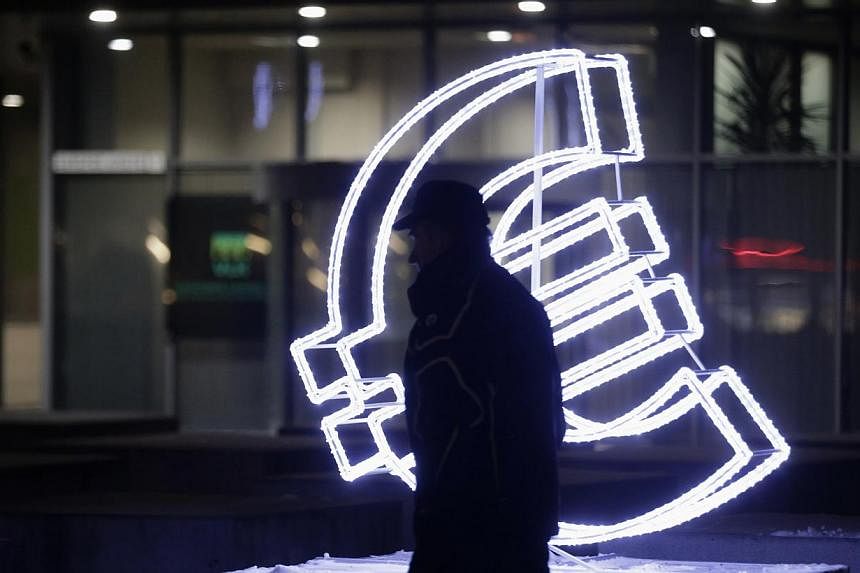The European Central Bank (ECB) announced a massive €1.1 trillion (S$1.7 trillion) bond-buying programme yesterday in a bid to jolt the flagging euro zone economy into life and steer it away from a dangerous deflation trap.
ECB head Mario Draghi said the bank will buy up to €60 billion worth of sovereign bonds a month starting in March and running until September 2016.
The stimulus package is far bigger than the €50 billion a month that market watchers had expected.
Mr Draghi said the programme, known as quantitative easing (QE), will "be conducted until we see a sustained adjustment in the path of inflation".
The plan involves the ECB buying up government bonds across the 19 euro zone nations in the hope that it will encourage banks to lend more money.
The eagerly awaited announcement - made at a press conference in Frankfurt - sent the euro down more than 1 per cent against the US dollar and to a seven-year low against the British pound. The currency also sank to its lowest against the Singapore dollar since March 2013.
The news also drove global markets higher. London's FTSE 100 rose by about 0.40 per cent, while Wall Street added 62.42 points in the first few minutes of trade last night.
The huge money-printing programme is being seen as the last big monetary policy option that the ECB has to stimulate firmer growth, as previous moves to cut interest rates and buy private sector assets yielded few results.
The euro zone has been stuck in the economic doldrums since a sovereign debt crisis hit the bloc in 2009. Consumer prices fell 0.2 per cent year-on-year in December, while gross domestic product grew only 0.2 per cent on-quarter in the third quarter last year, far below the pre-crisis levels.
Expectations of yesterday's announcement lifted major markets in Asia, with the Straits Times Index rising 0.47 per cent to 3,370.29.
The ECB move will also have a major impact on regional economies.
Barclays senior economist Leong Wai Ho told The Straits Times: "The timely QE will go a long way in accelerating the growth of aggregate demand in the euro zone. As growth accelerates, we can expect Europe to recover in sync with the United States, which will make for a more powerful global economic revival. Asian exporters such as Singapore will stand to benefit."
But many also recognise that structural reforms will remain a priority.
"Regardless of what the ECB does, it should not obscure the fact that the real growth impulses must come from conditions set by the politicians," German Chancellor Angela Merkel said at the World Economic Forum in Davos yesterday.
"What's important for me is that (politicians) move even more decisively to address the issues, rather than thinking that the buying of time through other measures means we can forget about structural reforms."


